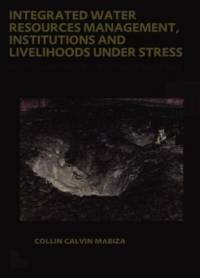Om Integrated Water Resources Management, Institutions and Livelihoods under Stress
The majority of people in Limpopo river basin depend on rainfed agriculture. Unfortunately the Limpopo is water scarce, and parts of the basin, such as ZimbabweΓÇÖs Mzingwane catchment, are under stress in terms of agro-ecological and socio-politicoeconomic conditions. Integrated Water Resources Management (IWRM) has been adopted in the river basin in an attempt to improve water resources management. However, it is not known whether, or how, IWRM has improved practices in water resources management and contributed towards improved livelihoods.
This study used a bottom-up approach to analyse water management practices and livelihoods in the river basin. The objective of the study was to understand practices in water resources management at the local level, and what drives those practices. Specifically the study analysed: practices in access to water for domestic and productive uses, efforts at sustaining livelihoods and the environment, water management for agriculture, contestations over urban water services, and river basin planning. The study showed the importance of context as a driver of practices in water resources management. The demonstrated influence of local level drivers on water resources management and livelihoods suggest that the challenges in water resources management cannot be solved outside of the wider socio-politico-economic realm.
Visa mer

